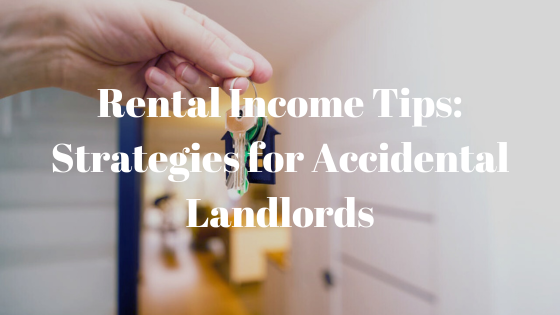4 Ways To Sell Your Rental And Maximize Profit

Good credit is hard to come by these days. With everything going on in our economy, along with the easy access to credit that everyone has, it’s easy to spend more than you earn and get behind on your payments. Foreclosures and student loan defaults are becoming even more common. These add to the problem.
As the creditworthiness of our population begins to decline, interest rates will be going up. That means fewer and fewer people will be able to qualify for a conventional loan. All of these challenges point to one fantastic solution that you and your property manager can implement as a part of your investing strategy: Rent To Own

Renting to own was a massive hit back when interest rates were upwards of 20% in the mid 20th century. Because money was so expensive, buyers relied on unconventional means to purchase homes. The structure of a rent-to-own is simple. You have a lease agreement along with a purchase option contract.
The Lease
There are several differences in the lease agreement when your tenant rents to own. The greatest difference we see is that most of the repairs are put into the hands of the tenant because they are pretty much buying the house. That helps put them in the owner mindset, which provides emotional equity. It results in them taking a lot better care of the home most of the time.
Some landlords put a cap on the amount tenants should pay for repairs. They’ll outline that the tenant is responsible for repairs up to $4,000 or $5,000 in the lease. The landlord will complete any repairs that exceed that amount. That takes the major CapEx repairs off of the shoulders of the tenant, which can help a lot when they’re trying to rebuild their credit. Just
account for CapEx in your cash flow projections when setting the rents.
Credit Repair
The tenant may be renting to own if their creditworthiness excludes them from conventional financing.

That provides a tremendous opportunity for the landlord to offer an additional service and earn a little bit of extra income. Find a trustworthy credit repair company, maybe one you’ve used in the past if you were ever in a similar situation. Offer to include that service as a part of the rent.
On average, the cost of the service is $100 a month, so you can enroll your tenant in the program and charge an additional $115 per month in rent. That is not a massive moneymaker and who can complain about an additional $180 per year of income?
Option To Purchase
While your property manager will be the one drawing up the lease, you’ll want to have a credible attorney draft the Option Agreement. The great thing about an Option Agreement is that it requires consideration. Some owners will only charge $2,000 to $3,000, but others will charge 5% to 10% of the total purchase price.
Often, this consideration serves as a credit to the purchase price when the tenant exercises their option in the future. Keep in mind that this is an amount of money paid by the tenant that allows them to purchase your property until a designated time in the future and is not a deposit. If they decide not to buy the house and move out, they do not get the money back.
Once you’ve received this money, it’s yours. Be sure to make this clear to your tenant
when signing the agreement. Transparency is critical to avoid them attempting to sue you in the future. It may even help to write up a separate written statement signed by the tenant showing that they understand this money is nonrefundable.

Another name for an option agreement is a one-way contract. The tenant has paid for the ability to purchase the property in the future, and the landlord cannot cancel it. The reason it is one way is that the tenant is the one who can make the decision and not the landlord. While that option is still in force, the landlord cannot sell that property to anyone else until the tenant has decided not to buy it.
A Higher Sales Price
In most cases, the landlord will sell their property for a premium over the usual market price when selling their house rent to own. That is because they provide an opportunity for that tenant to buy a house that they otherwise may not be able to buy by other conventional means. They’ll tack on an additional $5,000-$20,000 on top of the presumed sale price found by a Realtor’s comparative market analysis.
There are always downsides to any investment. A lease option is something that every landlord should consider since they can get a higher price and sell cash flow from the investment. Be sure to speak to your property manager before you execute this strategy. They can provide clear insight on the procedure and pitfalls you should avoid.







